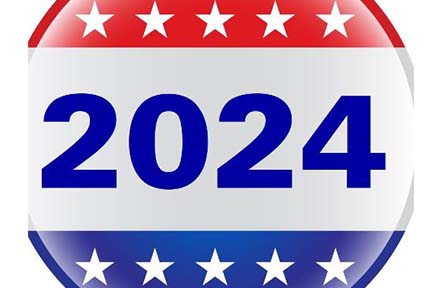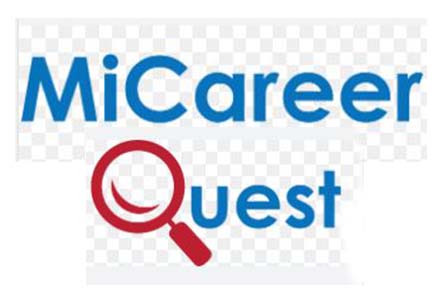
Benson releases 2024 presidential primary candidate list
|
|
|

|
|
|

Pontiac, Mich. – MiCareerQuest Southeast, the region’s largest career exploration event for high school students, will be hosting 8,000 youth and teachers from 100 Metro Detroit schools on Tuesday, Nov. 14, 2023, at the Suburban Collection Showplace in Novi.
Participants will engage in a variety of hands-on, interactive activities with nearly 1,000 working professionals from 119 businesses, labor organizations and educational institutions to explore 180 high-demand, high-paying career opportunities. MiCareerQuest Southeast covers more than 400,000 square feet of floor space at the Suburban Collection Showplace.
“There are so many well-paying, interesting career options to explore and pursue right here in the region, and MiCareerQuest Southeast is providing the students a look at what the future could hold for them,” said Oakland County Executive Dave Coulter. “This event also gives companies the chance to educate students about the skills they’ll need to start a successful career path.”
Students are required to visit four career quadrants: advanced manufacturing, construction, health sciences and technology. Each will feature occupations that are expected to be in high demand and experience the highest growth in southeast Michigan over the next several years.
Among the interactive activities for students: mock surgeries and medical procedures using life-like mannequins, physical therapy exercises, operation of industrial robots, virtual reality welding, building of brick walls and carpentry skills, utility linemen pole-climbing, heavy machine operator and truck driving simulators, computer programming demonstrations and operation of CNC machines.
MUST (Management and Unions Serving Together) Construction Careers and the Michigan Building & Construction Trades Council (MBCTC) are partnering as one of the Presenting Sponsors of MiCareerQuest Southeast and hosting multiple occupation activities in the event’s construction quadrant.
“MUST Construction Careers is proud to support MiCareerQuest once again as a construction quadrant Co-Presenting Sponsor,” said MUST Management Co-Chair Donna Pardonnet. “Our group of construction employers and skilled trades find MiCareerQuest to be an outstanding way to engage future talent.”
MBCTC Secretary/Treasurer Pat Devlin added, “MiCareerQuest is a great opportunity for students and educators to spend time with hands-on career exploration with all of the Michigan building and construction trades. We have a strong need to expand our future workforce and events like this are valuable to our affiliates.”
Schools and chaperones are assigned to one two-hour session during the day: 8:15 a.m., 10:15 a.m. or 12:15 p.m., depending on their distance from the venue. They spend 30 minutes in each quadrant. More than 100 federal, state, and local government officials, as well as educational and business leaders, are also scheduled to visit the event. Pre-registration is required.
High schools from across southeast Michigan were invited to MiCareerQuest Southeast, with the typical school bringing 50-100 students. The largest groups of students are coming from Oxford High School (372 students) in Oakland County, Romeo High School (470 students) and Fraser High School (410 students) in Macomb County. Some schools are bringing students from farther way, including Hartland High School in Livingston County and Whitmore Lake High School in Washtenaw County. Wayne County schools registered to attend include Belleville and Ecorse High Schools, as well as Southeastern High School in Detroit, among others.
“MiCareerQuest Southeast stands as an essential experience for students attending from around the region,” said Oakland Schools Superintendent Dr. Wanda Cook-Robinson. “This immersive, hands-on learning opportunity serves as the bridge between the classroom and real-world opportunities, illuminating the path ahead for the next generation of skilled workers.”
The event is organized by Oakland County Michigan Works!, the Oakland County Department of Economic Development, other Michigan Works! agencies across southeast Michigan, the Michigan Department of Labor and Economic Opportunity, and education and economic development partners from Macomb, Wayne, Monroe, Washtenaw and Livingston Counties.
Presenting sponsors include Oakland County Michigan Works!, Michigan Works! Macomb/St. Clair, Michigan Works! Southeast, SEMCA Michigan Works! Detroit Employment Solutions Corporation and MUST Construction Careers/Michigan Building and Construction Trades Council. Gold sponsors include Oakland Community College, Oakland Schools, Oakland University and Washtenaw Community College.
Silver sponsors include Automation Alley, Barton Malow, Corewell Health, Jackson College, Lawrence Technological University, Macomb County Planning & Economic Development, Michigan Economic Development Corporation, Operating Engineers 324 and Williams International. In addition, the family of Kenny Adkins, a member of Roofers Union Local 70, provided a silver sponsorship in his memory.
For more information, visit www.OakGov.com/MiCareerQuestSE.

|
|
|
|

Pontiac, Mich. – Oakland County Animal Shelter and Pet Adoption Center is now open on Saturdays and expanding its hours on Tuesdays and Thursdays to make it more accessible and convenient for people to adopt a pet or purchase a dog license.
The shelter has an unprecedented number of dogs and cats that need loving homes. In response, County Executive Dave Coulter’s administration worked with the Board of Commissioners to hire four additional employees to support the additional hours that the pet adoption center is open.
“There’s no better time to get a friend for life than right now,” said Oakland County Executive Dave Coulter. “We want to make it as convenient and accessible as possible for residents to head to the Pet Adoption Center and check out all the great dogs and cats, who are patiently awaiting their forever home.”
Beginning Nov. 4, Oakland County Animal Shelter and Pet Adoption Center will be open 10 a.m. to 4 p.m. on Saturdays. In addition, the pet adoption center will be open until 7 p.m. on Tuesdays and Thursdays starting Nov. 7.
“We believe that by being open to the public on Saturdays and later two days during the week, we will enable the public to have additional opportunities to come to the shelter to interact with our adoptable pets and hopefully pick out a furever loving addition to their family,” said Bob Gatt, shelter manager.
Currently, there are at least 125 dogs and more than 80 cats available at the pet adoption center.
Dog licenses for 2024 are available beginning Dec. 1. Proof of a current rabies vaccine is required to purchase a license. The shelter is offering free rabies vaccines every Tuesday morning from 9 a.m. until noon when the pet owner purchases a license at the same time.
The Oakland County Animal Shelter and Pet Adoption Center is located at 1200 N. Telegraph Road, Bldg. 42E, in Pontiac on the county government campus. To contact the pet adoption center, call 248-858-1070 or email [email protected]. For more information about adopting a pet, go to www.oakgov.com/petadoption.


FOR IMMEDIATE RELEASE
November 9, 2023 Contact: [email protected]
Governor Whitmer Announces Over $73 Million in Support for Entrepreneurial Hubs Across the State
LANSING, Mich. – Today, Governor Gretchen Whitmer joined the Michigan Economic Development Corporation (MEDC) to announce that 27 organizations have been selected to serve as entrepreneurial hubs across the state of Michigan, providing comprehensive resources and support to the state’s small businesses.
The Small Business Support Hubs (SBSH) program received approval by the Michigan Strategic Fund in June, following the passage of the $75 million Small Business Smart Zones and Business Accelerators initiative by the Michigan legislature in February. The program is funded by a one-time appropriation using American Rescue Plan Act (“ARPA”) dollars to create and operate programs to support small businesses disproportionately impacted by COVID-19.
“Small businesses are the backbone of Michigan’s economy, and this investment to support their growth from President Biden’s American Rescue Plan will build on Michigan’s economic momentum,” said Governor Whitmer. “These 27 entrepreneurial hubs across the state will shore up our small business ecosystem, providing economically disadvantaged entrepreneurs and small businesses with the support they need to keep growing and expanding right here in Michigan.”
The program generated a high level of interest and demand, with a Joint Evaluation Committee reviewing over 80 applications representing a total of $275 million in funding requested. The 27 organizations selected will receive an average grant size of $2.7 million. While state law requires 20-percent of the businesses served by SBSH program to be minority-owned, an average of over 50-percent minority-owned businesses will be served among the applications selected.
“Michigan is committed to bolstering our entrepreneurial ecosystem by supporting the small businesses that drive our economy, as well as the trusted and expert partner network that serve them, across the state,” said Amy Rencher, MEDC Senior Vice President of Small Business Services. “By leveraging federal dollars, the Small Business Support Hubs will help us expand and improve resources across the state, as well as raise the national profile of the strength of our entrepreneurial community.”
Programming across the 27 hubs is designed to meet regional needs as well as economic competitiveness measures, such as resources for strategic sectors including ClimateTech and Advanced Manufacturing. The hubs will also offer targeted support to family-owned and rural businesses to drive resiliency in a rapidly evolving economic climate.
Resources available from the hubs will include one-on-one coaching, cohort-based learning and accelerators, mentor matchmaking, pitch competitions, networking events, access to capital, partner referrals, and statewide resource navigation.
Grantees by Region
Multi-Region grantees are West Michigan Hispanic Chamber of Commerce ($2,500,000) and ProsperUs Detroit Micro Lending ($2,000,000), while state-wide grantees are Lawrence Technology University Centrepolis Accelerator ($3,426,316), Small Business Association of Michigan Foundation ($3,426,316), and Michigan Founders Fund ($2,926,315).
Among the awardees for Region 1, Lake Superior Community Partnership has provided support to its business community in Marquette County for 25 years. With 95 percent of businesses in Marquette County classified as small businesses, the $3 million in funding from the SBSH program will ensure they can continue to support the small business ecosystem in the U.P.
“We’re honored to be awarded funds to expand those efforts by adding boots-on-the-ground support to reach small businesses in the entire central upper peninsula region, elevating our impact through more customized support and small business grants,” said Lake Superior Community Partnership CEO Christopher Germain. “With a wide range of partners, including Innovate Marquette, Accelerate UP, Northern Michigan University, Keweenaw Bay Indian Community, Sault Tribe Inc., and SDBC Upper Peninsula, the next three years will further cement the region as a great place to start and grow a small business.”
“The Upper Peninsula is a great place to live, raise a family, and work,” said state Senator Ed McBroom (R-Waucedah Township). “These funds will help to make sure opportunities to work remain available. Our small businesses remain the foundation of our economy, and the MEDC support shows a commitment to fostering those opportunities. Ensuring future generations have the chance to remain here is great for the U.P. and the state of Michigan.”
In Region 10 and also providing state-wide support, the Lawrence Technology University Centrepolis Accelerator also received a maximum award of $3 million from the SBSH program. The Centrepolis Accelerator aims to fuel the growth of Southeast Michigan’s small manufacturers and hardware entrepreneurs by providing access to key resources including mentors, workshops, cutting-edge technologies, corporate connections, student and faculty engagement, events, workspace, and a collaborative community of peers.
“The MEDC Small Business Hub award allows Centrepolis, Michigan’s only dedicated hardtech physical product technology accelerator, to scale up our capabilities to help support entrepreneurs throughout the Upper and Lower Peninsula,” said Dan Radomski, CEO of Centrepolis Accelerator. “With this funding, we will commercialize more physical products, advanced materials and manufacturing technologies, maintaining our state’s leadership in this area and ensuring these products are designed, engineered, prototyped, and manufactured in Michigan.”
The SBSH funding will also enable Centrepolis to launch a Defense Hardtech Accelerator to develop technologies critical to national security and address domestic supply chain gaps.
“It’s an exciting time in Michigan, we’re investing in businesses big and small,” said state Representative Jason Hoskins (D-Southfield). “This is crucial infrastructure to truly compete for the best jobs and to strengthen small business and entrepreneurship in our communities. Not just in Southfield— but across the entire State, we’re delivering.” |

|
|
|
|